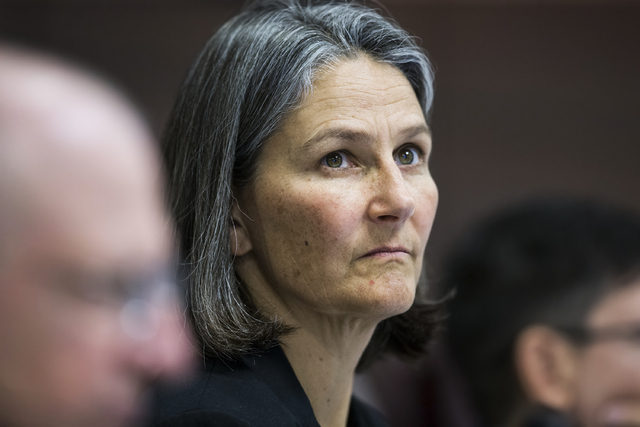Marijuana tax fight kicks off with first passage of pot bill
The fight over pot taxes is officially underway in the Nevada Legislature.
With less than a month left in the session, the debate over how the state should spend cash generated by fast-approaching retail marijuana sales got off the ground Tuesday night when the Senate Committee on Revenue and Economic Development voted on party lines 4-3 to send Senate Bill 487 to the floor for a full vote.
With Tuesday’s vote, Democratic Sen. Julia Ratti’s SB 487 became the first of three proposed recreational marijuana tax bills to clear a committee.
The question remains whether Gov. Brian Sandoval, whose own SB 508 proposes a different tax structure, would be willing to sign a marijuana tax that is not his own.
Sandoval’s bill calls for a 10 percent tax on recreational marijuana. His proposed budget projects that tax to generate about $70 million over two years, with the money going into the state’s education fund.
A third bill, SB 302 from Sen. Tick Segerblom, calls for a 15 percent tax that would send more money to local governments.
Because the bills impose a new tax, a two-thirds vote is needed in both houses for them to be sent to the governor’s desk and be signed into law.
Ratti said the goal of her bill is to combine the various proposals and build “an efficient, effective taxation system.”
The amended version of SB 487 approved by the committee would put a 12 percent tax on recreational marijuana sales. Ten of the 12 percent would go to the state’s public education fund — matching Sandoval’s proposal — and the remaining 2 percent would go to a new fund, the Youth and Families Account.
The new account would help fund programs to help with “impacts of substance use on our communities,” Ratti said, and would focus on preventing substance abuse and marijuana use among youth.
Other amendments adopted into SB 487 include mirroring the taxes at the cultivation level for both medical and recreational marijuana so companies don’t have to separate and track the products separately and caps the fees local governments can place on marijuana businesses at three percent of gross revenue.
Contact Colton Lochhead at clochhead@reviewjournal.com or 702-383-4638. Follow @ColtonLochhead on Twitter.






















